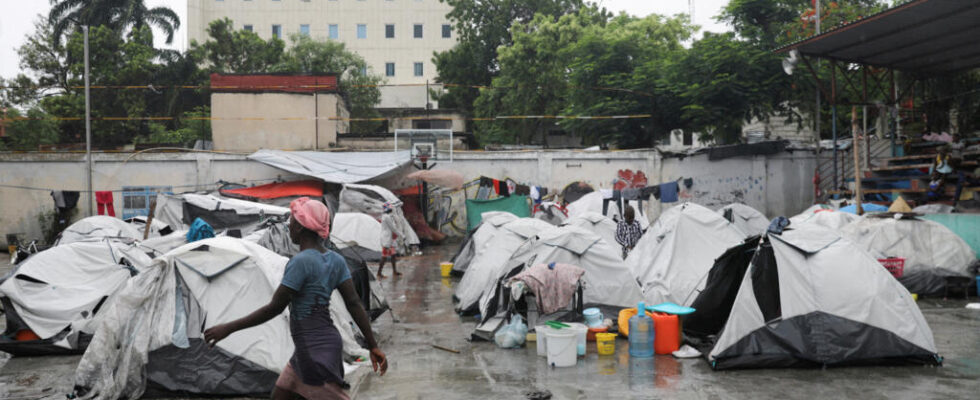The number of internally displaced people has increased by 60% since March 2024 in Haiti due to intensifying gang violence, now reaching a total of nearly 600,000 people, according to the International Organization for Migration (IOM).
3 mins
According to IOM data published Tuesday June 18, Haiti now has 578,074 displaced people, compared to 362,551 at the beginning of March, for a total of more than 10 million inhabitants.
This increase is largely linked to the large number of people who have fled Port-au-Prince to take refuge in other provinces which do not necessarily have the resources to welcome them.
The IOM has thus identified nearly 95,000 people leaving the capital between March 8 and April 9, notably to go to the Grand Sud province, where the displaced now represent 10% of the population.
“ Today, this phenomenon of internal displacement affects the province more widely », Underlines to RFI Philippe Branchat, the head of mission of the United Nations agency, the IOM, in the Haitian capital, Port-au-Prince. “ Half of the internally displaced people of Port-au-Prince find themselves in the Great South », he specifies joined by Jelena Tomicinternational service.
Haiti has suffered from chronic political instability for decades. And in recent months, the country has had to face a resurgence of gang violence, which controls 80% of Port-au-Prince. “ Coordinated gang attacks on different locations in the metropolitan area [de Port-au-Prince] generated a lot of displacement and fear », assures Philippe Branchat.
80% of displaced people in host families
Sometimes families have to travel several times. due to a new gang attack », adds Philippe Branchat. “ Many fled from the moment [la situation dans] their neighborhood has become untenable “. On a national level, ” a large number of these families, 80%, were able to find refuge in host families, which allows less exposure to any type of violence “. However, it is “ important to be able to strengthen access to social services because more than 300 000 people in host families, it puts a lot more pressure on the education system, the healthcare system and access to water », warns Philippe Branchat.
Terms ” unsanitary » in improvised reception sites
In front of “ the erosion of the capacity of host families to accommodate displaced families » notes the head of IOM in Haiti, the capital has seen an increase in the number of improvised sites – notably schools or churches – where the displaced live. in unsanitary conditions “. “ These places are not suitable for long-term accommodation. […] Sanitary, hygiene and safety conditions » are there « largely degraded », deplores Philippe Branchat.
The IOM now estimates the number of displaced people in the metropolis of Port-au-Prince at nearly 185,000, an increase of 15% since the beginning of March, reports Agence France-Presse.
In this complicated security context, the Haitian National Police announced this Tuesday, June 18, that they are equipping themselves with “ 455 new police officers from specialized units », reports Gazette Haiti.
